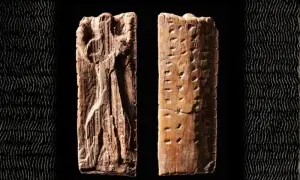Cheetahs back in wild in India after seven decades
2 min readTwo Namibian cheetahs relocated to India last year were released into the wild, more than seven decades after the world’s fastest land animal was declared extinct in the South Asian country.
“Both cheetahs are doing good,” India’s Environment Minister Bhupender Yadav tweeted Saturday after the male and female darted from quarantine enclosures of Kuno National Park into the wild.
“Big day for the cheetah reintroduction programme,” Yadav added.
Obaan and Asha were among eight cheetahs brought to India last September after India’s top court ruled in 2020 that the species should be reintroduced on an experimental basis. The programme is a major prestige project for Prime Minister Narendra Modi, who presided over the release of the animals into an enclosure after their arrival.
Twelve more of the globally listed “vulnerable” big cats were translocated from South Africa last month, with India aiming to bring in about 100 of them over the next decade. The last Asiatic cheetah to roam the sub-continent was believed to have been hunted down in 1947 by an Indian prince.
The spotted feline was declared officially extinct in India in 1952.
Kuno National Park, a wildlife sanctuary in central India, was selected for relocation of the African cheetahs – a different subspecies – for its abundant prey and grasslands.
The African cheetah’s introduction in India is the first intercontinental relocation of the planet’s fastest land animal.
Critics have warned the creatures may struggle to adapt to the Indian habitat due to competition for prey from a significant number of leopards in the national park.
Cheetahs are one of the oldest big cat species, with ancestors dating back about 8.5 million years, and they once roamed widely throughout Asia and Africa in great numbers.
But today, after their extinction from many countries across the Middle East and Asia, only around 7,000 remain, primarily in the African savannahs.
For the latest news, follow us on Twitter @Aaj_Urdu. We are also on Facebook, Instagram and YouTube.



























Comments are closed on this story.